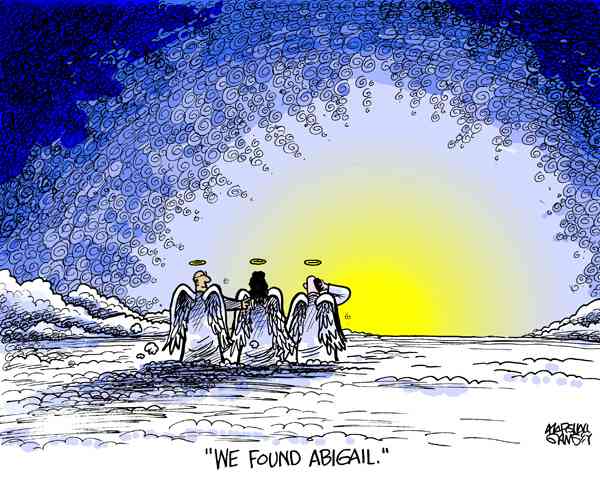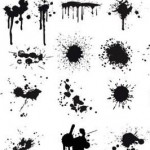
Gray clouds hang over the brown Mississippi Sound, selfishly hiding sunken treasures never to be found.
Occasionally the murky water gives up a prize: A button, a washer or some other surprise.
The killer ocean swept away his life during it’s prime; now she gave it back, one piece at a time.
A gull squawked at the lone man standing on the Biloxi Beach. He was tall, thin, slightly balding and holding a leather journal. He finished writing and carefully put it in a pocket in his apron. It was time go to work. He crossed Highway 90 and entered the greasy waffle restaurant.
“Table four needs to be bused. Pronto.”
“Good morning to you, too, Donna Ray.” Gary Drucker punched the clock and picked up his plastic tub.
Biloxi’s Waffle Barn #3 sprang up from the sand like a water-logged phoenix after Katrina. Gary had once joked that the storm was the first time the restaurant’s floor had been cleaned. People didn’t joke about Katrina much. But Gary did. He had earned the right the hard way.
“Hurry up, boy. We done got customers waiting.”
Donna Ray’s shrill voice was like cat claws on a chalk board. She was the cashier/hostess/manager/pain-in-the-butt extraordinaire of Waffle Barn #3. And while she claimed to be from somewhere up north, Gary was convinced she had flown in straight from Hades. Donna Ray was a large woman who smelled vaguely like cats. And she was grumpy. Very grumpy. She was just a big bag of chuckles.
“Yes, ma’am.”
Gary was forty-five and a busboy. Not exactly how he had planned his life to turn out. He looked back across highway 90 out at the Mississippi Sound. The sea had taken everything from him, including his sanity. So now he worked odd jobs up and down the Mississippi Gulf Coast until it washed ashore.
He looked at the change on the table. He saw all the presidents he wanted to see — but only on coins and not paper. Waffle Barn wasn’t the place to get rich. In the distance, he could see the fool’s gold known as Seaside Casino. Maybe someday he could get a job waiting tables at Johnny Steak’s House of Meat. He’d be rolling in the big bucks. If only he could work at the House of Meat.
House of Meat. Who the hell named a restaurant “House of Meat?” It really sounded like dirty in a 6th grade joke. As opposed to the wholesomeness of “Waffle Barn.” “Excuse me ma’am, would you like to join me and eat at the House of Meat?”
Gary laughed at his own joke.
Waffle Barns had popped back up after Katrina like mushrooms. There was a small fortune to be made in feeding relief workers who had descended on the coast like helpful locusts. But now the rebuilding had stalled and the workers had gone away. Quaint middle-class residents had gone the way of barge-based casinos. The insurance was too high for anyone to rebuild — unless you could afford a disposable house. Gary couldn’t do that. His family’s home had washed up down the beach. His wife nearby. Waffle Barn #3 wasn’t far from where he found her. It’s why he couldn’t leave.
Waffle Barn # 3 was his purgatory. Gary had sins to be forgiven.
He plopped the dirty dishes into the bucket. They never should have stayed. “The house survived Camille,” he remembered telling his wife Judy. He could hear his words every night in his nightmares. The house HAD survived Camille. But Katrina wasn’t Camille. He also had nightmares of the surge crashing through the front windows. And of the house collapsing while they were in the attic. He heard her screams for help. He saw Judy’s blue face. He had killed her.
Gary’s eyes burned. Must have gotten something in them. Or something.
“Hurry up over there. You got molasses in your veins?”
Gary wanted to tell Jabba’s twin sister to shut up. But just he smiled and said, “yes, ma’am.” Being polite was a Southern thing. Being polite meant he got to keep this job.
Off in the distance, a small Cessna tugged a banner for Crazy Carl’s Souvenir Emporium. Crazy Carl and his Emporium were institutions along the Gulf Coast. It was an empire of imported Chinese knickknacks built on a foundation of family booze money. Carl’s daddy had bootlegged and gambled during the Coast’s wild years. Before Camille. Carl took the trust fund left to him and invested it in tacky souvenirs.
Carl was also Gary’s older brother. The two didn’t talk much. After 45 years, they had just run out of things to say. The last thing Carl had said to him was, “You killed her, you know.” Carl still was missing his two front teeth.
“You ought to ask your brother for a job.” Donna Ray noticed the plane’s banner and threw her unwanted opinion in. It lay on the floor, stinking like a dog turd.
Gary shivered at the thought. He’d rather swallow more sea water than his pride.
At table #5 sat a blond that looked vaguely familiar.
“Gina?” Gary said with a smile. “What are you doing home? And how are you doing? I lost track of you after you got laid off.””
Gina was a reporter for The New York Times. She had profiled Gary when she was a reporter for the local paper The Sun Herald.
“Gary, is that you? Her voice sounded genuinely excited. “I’m here to do a piece on the Katrina anniversary. I took a job in Memphis and then the Times hired me. I’m surviving. You know how the newspaper business is these days. You live day to day.”
Gary understood. He had been doing that since the storm.
“I want to show you something,” Gary blurted out. Living alone meant he didn’t talk to many people — only his cat Gulfport. And Gulfport wasn’t much of a conversationalist.” Gary reached into his apron pocket and pulled out a black leather notebook.
Gina took the book and said, “What’s this?”
Gary said, “Open it and read.”
Inside were the amazingly descriptive poems and stories based on Gary’s daily walks on the beach. It was a eight-year journal on one man’s odyssey back from the brink.
“These are amazing. Mind if we publish a few of these? I want to write a story based on your journey. These could really help others who are going through what you’re going through. Lord knows many in New York and New Jersey could appreciate your journey. Sandy kicked them in the teeth pretty hard, too.”
Gary thought about it for a moment. And then said, “If it helps, sure.” It was his moment. He felt at peace.
The New York Times Magazine ran a feature on him and his poems. Soon he was on talk shows and reading his poems in New York — When Donna Ray would give him the time off.
Random House published a compilation of them that was illustrated by famous water colorist Wyatt Waters. “Son of a Beach: Tales From the Eye of the Storm” quickly became a New York Times Best Seller. He charmed Jay Leno and David Letterman and the rest of the country. Critics said his writing was funny, brutal and honest. There was something about his candor. He had stared the Devil in the face and the Devil had blinked. People needed to hear his story. Gary soon had enough money to quit Waffle Barn #3.
But he didn’t.
He continued to bus tables. He stayed in Purgatory by choice. He decided to stay there to help others out of it.
He spent all his free time writing and working as a counselor at the local hospital. And petting Gulfport and heckling Donna Ray. It was a good life. A simple one. He grew where he was planted.
One day as he was walking down the beach, he noticed something glimmer. He bent over, brushed the sand away. It was Judy’s locket. The ocean had returned a hostage. The ocean released his sanity.
Gary had paid for his sin. Now he was busy helping recover from theirs.
The killer ocean swept away his life during it’s prime; now she gave it back, one piece at a time.
 A drum line can be like a time machine. I stood in the lobby of the local high school listening to the band play before the pep rally. Suddenly I could smell freshly cut Bermuda grass and felt my old black football helmet strapped on my head. It has been 28 years since I last played high school football. Most days I don’t miss it — but I did last night. I wish all the kids across the state a successful season. I learned a lot about life from my football coaches. I hope the kids today get the same experience I did — good and bad.
A drum line can be like a time machine. I stood in the lobby of the local high school listening to the band play before the pep rally. Suddenly I could smell freshly cut Bermuda grass and felt my old black football helmet strapped on my head. It has been 28 years since I last played high school football. Most days I don’t miss it — but I did last night. I wish all the kids across the state a successful season. I learned a lot about life from my football coaches. I hope the kids today get the same experience I did — good and bad.








